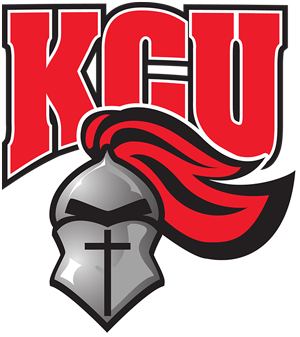Middle School Education
Become an impactful educator of adolescents through our Middle School Education Degree.
Degree: Bachelor of Arts
Delivery: Face-to-Face
Time Required: 4 years
Middle School Education Program:
Our Middle School education program will prepare you to teach in grades 5-9 in both public and private schools. Our experienced professors ensure our graduates are knowledgeable in both content and the art of teaching. Teacher Candidates begin clinical experience and onsite training their first semester on campus. The valuable time spent in local classrooms allow them to apply the knowledge and training they receive in our highly effective education courses. Graduates are employed immediately and continue to receive support from our faculty and staff after graduation.
Admission to the Teacher Education Program
- Be admitted to Kentucky Christian University (Apply Here)
- Meet the following Teacher Education Program Requirements
- Cumulative GPA 2.75
- Meet minimum required scores on KSE Key Assessments
- 200 Clinical Hours
- Meet Dispositional Interview Requirements
- Receive required scores on the Core Academic Skills or Educators of ACT Requirements
- ACT Composite: 22 or ACT: Math 19 and Reading20 and English 18
- Case Scores: Reading 150, Writing 158 and Math 144 w/ a GPA 3.0
- Praxis Content and Pedagogical Exams
Required Course Listing
Total Program Hours:
College 101 or Intro to KCU
Composition I or ENG 100
Composition II
Fundamentals of Speech
History Elective
Humanities Elective: ENG 213, 223, 233 or 302*
Introduction to New Testament
Introduction to Old Testament
Math Elective
Science: Human Biology or Science and Society
Social Science: ECO 311/312, HCP 101, or HSO 201
College 101 or Intro to KCU
Composition I or ENG 100
Composition II
Fundamentals of Speech
History Elective
Humanities Elective: ENG 213, 223, 233 or 302*
Introduction to New Testament
Introduction to Old Testament
Math Elective
Science: Human Biology or Science and Society
Social Science: ECO 311/312, HCP 101, or HSO 201
Acts
BNT, BOT, BTH, CML, CMM, CMP, CMY, or IST Elective
Christ and Culture
Christian Heritage
Introduction to New Testament
Introduction to Old Testament
Acts
BNT, BOT, BTH, CML, CMM, CMP, CMY, or IST Elective
Christ and Culture
Christian Heritage
Introduction to New Testament
Introduction to Old Testament
Behavior Management
Classroom Management
Developmental Psychology
Diversity in the Classroom
Educational Technology
Exceptional Children
Introduction to Education
Junior Practicum
Learning Theories & Assessment
Literacy Across the Content
Sophomore Practicum
Student Teaching
Behavior Management
Classroom Management
Developmental Psychology
Diversity in the Classroom
Educational Technology
Exceptional Children
Introduction to Education
Junior Practicum
Learning Theories & Assessment
Literacy Across the Content
Sophomore Practicum
Student Teaching
Additional Course Notes
Concentrations:
- English
- Mathematics
- Science
- Social Studies
Students wishing to major in middle school education have two options with differing requirements:
- Recommended Option: Select two subject areas of concentration: The required core courses and only the classes listed outside of the boxed areas of the two subject areas of
concentration must be completed. - One specialized subject area: The required core courses and ALL courses and electives listed below the single concentration area must be completed.
British Literature
Children’s Literature
General Electives
British Literature
Children’s Literature
General Electives
Calculus I
College Algebra*
General Electives
Introduction to Statistics
Math for Teachers I
Math for Teachers II
Math Methods
Pre-Calculus
Problem Solving for Teachers
Calculus I
College Algebra*
General Electives
Introduction to Statistics
Math for Teachers I
Math for Teachers II
Math Methods
Pre-Calculus
Problem Solving for Teachers
General Chemistry I and CHE 213 Lab
General Electives
General Physics and PHY 303 Lab
Human Biology Lab
Human Biology*
Intro to Earth Science and PHY 103 Lab
Intro to Physical Science and PHY 107 Lab
Priciples of Biology and BIO 110 Lab
Science Methods
Upper Level Electives
General Chemistry I and CHE 213 Lab
General Electives
General Physics and PHY 303 Lab
Human Biology Lab
Human Biology*
Intro to Earth Science and PHY 103 Lab
Intro to Physical Science and PHY 107 Lab
Priciples of Biology and BIO 110 Lab
Science Methods
Upper Level Electives
American State and Local Government or American Civics
Economics Elective*
General Electives
Historical Methods
Intro to Historical Geography
Social Studies Methods
U.S. History I
U.S. History II
Upper Level Electives
World History I*
World History II
American State and Local Government or American Civics
Economics Elective*
General Electives
Historical Methods
Intro to Historical Geography
Social Studies Methods
U.S. History I
U.S. History II
Upper Level Electives
World History I*
World History II
Additional Course Notes
Required General Education core based on area of concentration.
Well Prepared
“Thank you so much, Dr. Brickey! I was well prepared, both educationally and most importantly, spiritually. I will forever remember this experience. I pray I can continue to make Yancey School of Nursing proud as I practice my career.”
Nephtalie Fleur, Class of 2022


